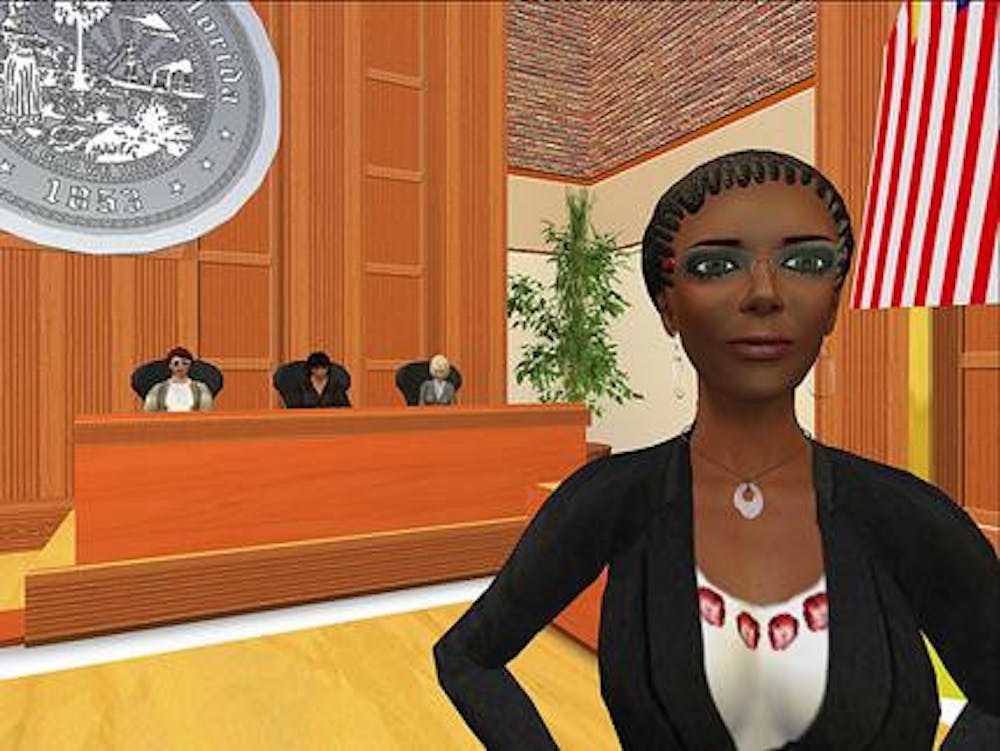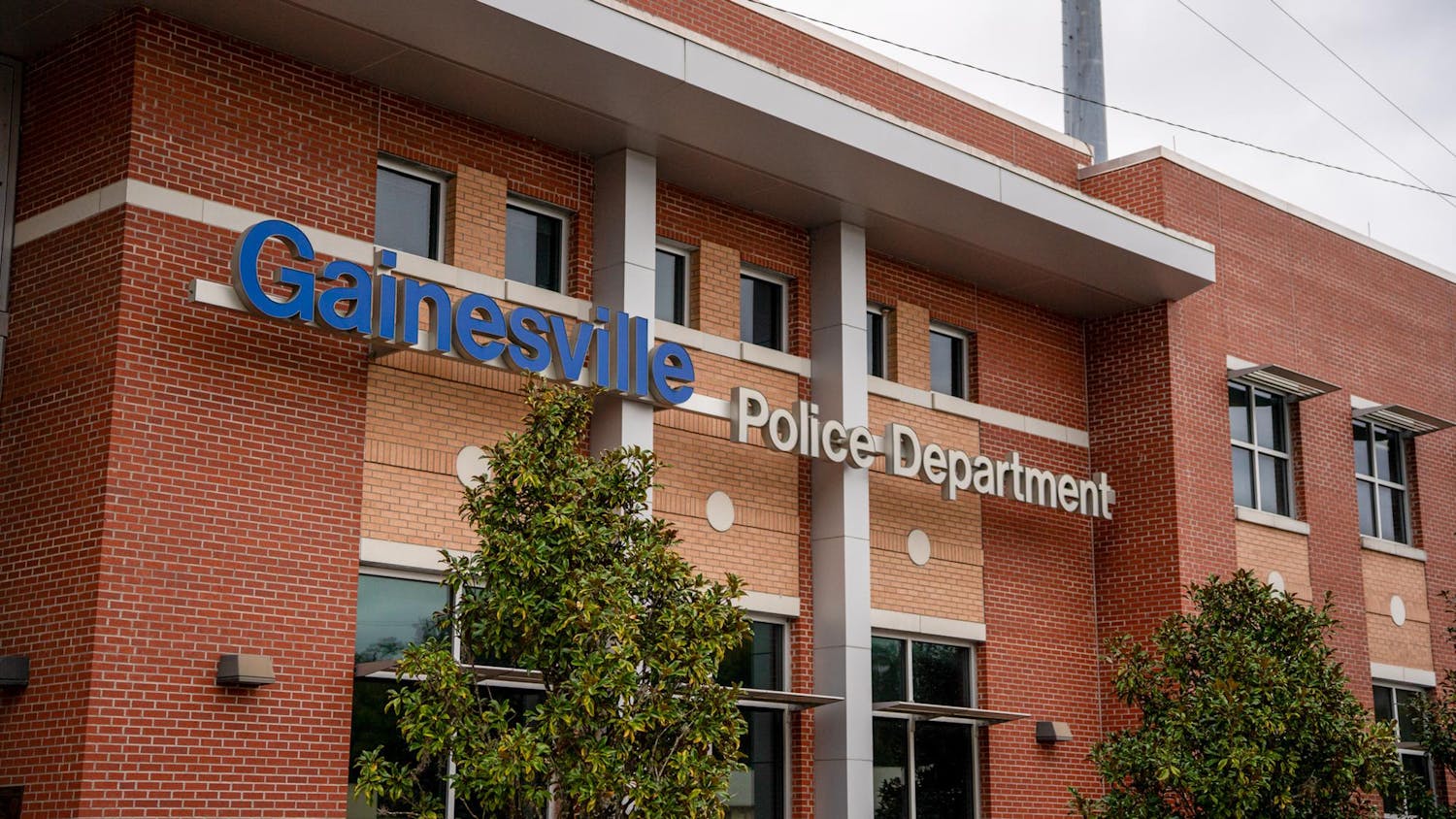Michelle Jacobs is only a few inches tall during third and fourth period Thursdays - unless you zoom in on her.
Jacobs, a professor in UF's Levin College of Law, teaches Crime in the Virtual Context using Second Life, a computer simulation program that allows users to create computer versions of themselves and interact with each other in a virtual classroom.
Jacobs said she already had her own Second Life persona when she discovered student-created Gator Nation Island and was both hesitant and excited to become involved with it on an academic level.
"With any new technology you risk massive failure when you are an early adopter but the possible benefits were intriguing to me," she said. "I'll confess I was surprised to learn that people at UF were advanced enough to consider it."
Gator Nation Island's designer and architect, Joshua Javaheri, originally built the island for his senior project in UF's digital arts and sciences program.
Javaheri said the toughest part of designing the virtual space was finding a balance between maintaining the appearance of UF's Levin College of Law and the surrounding areas and making it easily recognizable by the students in the class.
He worked with UF's Digital Worlds Institute and the law school to create the virtual campus, and Javaheri said he worked hard to meet both of their expectations.
"I worked on a plan that would suit both parties' needs," he said, "which, as any architect can attest to, is always a challenge."
According to Javaheri, the Second Life classroom uses multimedia from in-game Powerpoint presentations to YouTube showings on the tiny televisions.
Students also have the option to communicate with one another and Jacobs via headset or chat.
Jacobs said while the virtual classroom isn't a substitute for taking a class in person, it is more engaging than a standard online class.
"The beauty of the environment is that they are experiencing what they are studying," she said. "It's no longer hypothetical, dry discussion but a lived experience."
Aside from the virtual face to virtual face interaction, Jacobs said learning in Gator Nation Island classroom offers the ability to connect the students with experts around the world without the cost of booking fees and plane tickets.
"Now, an expert in Europe can simply log in and be right in the class with my students," she said. "It's wonderful."
Aside from the virtual face-to-virtual face interaction, Jacobs said learning in Gator Nation Island classroom offers the ability to connect the students with experts around the world without the cost of booking fees and plane tickets.
Although the interface is made as user-friendly as possible, Jacobs said the learning curve could make it a challenge to some.
"This is not for someone who has little patience or is afraid of technology. It would be too frustrating," she said.
But according to Jacobs, the effort it takes to get used to the Second Life classroom is worth the benefit of using an interactive virtual classroom over a dry online class.
"It's not just you (the student) and a computer screen. Rather you are in an actual class with other students," she said. "You are still interacting with other human beings in real time and benefiting from the intellectual exchange that is the hallmark [of classroom learning]."






